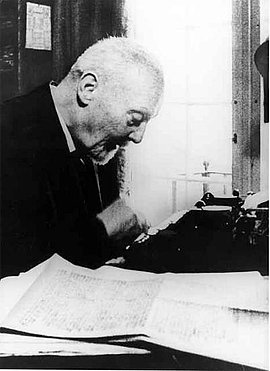German Resistance Memorial Center Biographie
Theophil Wurm
Theophil Wurm, born in Basle as the son of a pastor, belonged to the Christian Social Party before the First World War, and then to the Citizens’ Party, which he represented in the Württemberg State Parliament until 1920. In 1899 he became a prison chaplain in the Protestant Society. From 1913 on he was a parish pastor. In 1929 Wurm was President of the Protestant Church of the State of Württemberg, and was Bishop there from 1933 on. Wurm initially welcomed Hitler’s government, but National Socialist church policy led him to become an opponent of the regime. In September 1934 Wurm was initially suspended from office because of his position on church policy, and then placed under house arrest twice by the Württemberg Interior Ministry. After a consultation with Hitler on October 30, 1934, these repressive measures were revoked. In the same year Wurm conclusively withdrew from the “German Christians” and attended synods of the Confessional Church, but distanced himself from positions of its resolute wing. However, he repeatedly lodged complaints with representatives of the National Socialist Party and the state, and from 1940 on he protested several times against the murder of patients from psychiatric clinics and homes. As a result, in 1944 he was banned from making speeches and publishing. Theophil Wurm, who was close to the resistance circles around Carl Goerdeler and Ludwig Beck, survived the war. In 1945 he was elected as the first chairman of the Protestant Church Council in Germany (EKD). He was a co-author of the Protestant Church’s Stuttgart Confession of Guilt, dated October 19, 1945.


